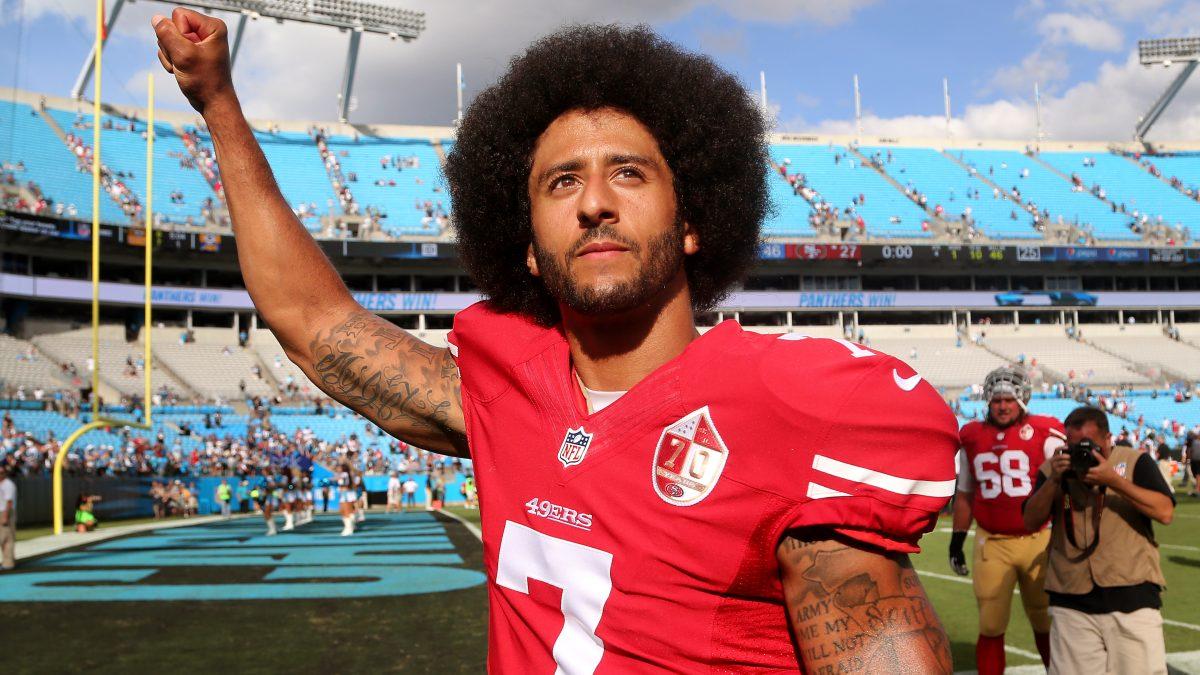BY PARKER KLYN
In 2014, I was moved by the story of Michael Sam. Most have probably forgotten about him by now, but here’s the gist of it: he was the first openly gay player to be drafted into the NFL. Sam had a beautiful moment when he was drafted; despite the free fall of multiple rounds past his projection, he was still ecstatic to be picked and kissed his boyfriend on national television as part of his celebration.
Unfortunately, backlash followed. Don Jones of the Miami Dolphins tweeted “horrible” in reaction to the pick and celebratory kiss. Sam ended up not even making a roster, despite his terrific performance in that year’s preseason, and has since retired from football. I believe that were Sam not gay, he would still be in the NFL. For a league that employed woman beaters and just finished an embarrassing mishandling of a disgusting hazing and bullying scandal, I was beginning to believe that this multi-billion dollar industry would stay frozen in the past.
Three years later, the 2017 football season has almost entirely changed my beliefs on what the league could possibly stand for. Under the most polarizing political climate in my lifetime, the NFL has become a heartening example of what athletes can accomplish simply by using their immense platforms. Even items that on their surface might be apolitical (such as J.J. Watt raising nearly $20 million for hurricane relief) establish themselves as incredibly impactful – as well as somewhat surprising, simply because we haven’t seen this level of widespread community engagement from athletes in a long time.
This turn for the better began with one magnificently simple act: Colin Kaepernick sitting during the playing of the national anthem, saying “I am not going to stand up to show pride in a country that oppresses black people and people of color.” And while that’s a fight that won’t be won anytime soon, especially considering the people in power, the protest was, at first, the most high-profile political statement by an athlete since LeBron James wore an “I Can’t Breathe” shirt while warming up for a game, in reference to the brutal police murder of Eric Garner.
Kaepernick was immediately vilified. CBS commentator and former NFL player Boomer Esiason called him an “embarrassment.” Former player Rodney Harrison stated that he doesn’t believe Kaepernick truly understands what it means to be black in the United States (Kaepernick’s biological father is African-American, and he was adopted and raised by white parents). The most common reaction was more subdued, still in opposition: refrains of “I agree with his right to protest, but I don’t like how he’s doing it.”
Still, Kaepernick stayed with it. He made good on his promise to put his money where his mouth is, with a pledge to donate $1 million to charity; he has since donated at least $800,000. But even if he hadn’t done anything using his own money, and instead had just continued to silently protest, it still would have been an admirable effort, because it’s calling attention to an uncomfortable truth that many people don’t want to discuss: American society is unequal.
The fact that people of color are oppressed in the United States is indisputable. It’s seemingly on a weekly basis that an unarmed black person is gunned down by police. Blacks and Latinos are disproportionately sentenced in response to drug offenses. Statistics rarely show the gravity of oppression and inequality, but I find this to be particularly powerful: the median white household retains over $116,000 in wealth, while the median Black and Latino households have $1,700 and $2,000, respectively, with those numbers falling.
Kaepernick’s message of black oppression has spread. What started as one isolated person taking a stand has ballooned into hundreds of players raising fists, locking arms, kneeling, stretching or even staying in their locker rooms during the protests. Perhaps the most surprising development within the movement is the participation of team owners. Cowboys owner Jerry Jones knelt while the Falcons’ Arthur Blank and the Jaguars’ Shad Khan locked arms with players during their games’ national anthems. Even professional baseball player Bruce Maxwell joined the protest, kneeling before an Oakland Athletics game.
Because people were so reluctant to openly support the protests at first, it’s difficult to see everyone’s decisions join as genuine. The owners, especially, seem at least a little hypocritical, as Kaepernick remains without a spot on an NFL roster (despite a recent FiveThirtyEight piece describing a quarterback of his caliber remaining jobless for this long as “unprecedented”). Still, I’d much rather see people come around and realize what is the right thing to do rather than remain in their color-blind ways.
Protesting the national anthem is not unpatriotic, and it doesn’t disrespect American veterans. In fact, most veterans and active duty military members I’ve seen aren’t offended at all that these players would use their platform to promote a just cause. If you’re in opposition to the protests, I’d implore you to ask yourself this: what makes you more uncomfortable, systemic racism or sitting during the national anthem? I ask this because I can’t fathom caring more about a piece of fabric than the inequality that my fellow people face every single day.
Colin Kaepernick is a hero, and I firmly believe that he will go down in history among other great athletes committed to social justice like Muhammad Ali, Tommie Smith and John Carlos. Not only that, but he has given me hope that elites, perhaps even those outside of the realm of sports, can begin to advocate for and contribute to an equal America. One man’s actions have led to a national conversation about perhaps the United States’ most essential issue, and that, more than anything else since the start of this year, gives me hope for the future.







